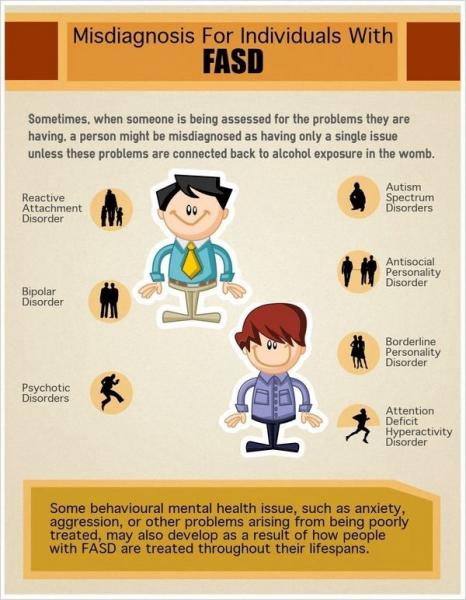FASD is a brain injury that can occur when an unborn baby is exposed to alcohol. It’s a lifelong disorder with effects that include physical, mental, and behavioural and learning disabilities. These can vary from mild to severe.

FASD (Fetal Alcohol Spectrum Disorder) is caused when a mother drinks alcohol during pregnancy.
The impact of alcohol on a developing fetus is influenced by the:

Some babies are born with facial features that are characteristic of FASD. These features only occur when a fetus is affected by alcohol at a particular stage in pregnancy. Only a small number of people with FASD will have these features. The features include:
For all individuals with FASD, there will be different degrees of brain damage. Signs of this may include problems with:
Youth & Adult people can struggle with:


FASD is a brain injury that can occur when an unborn baby is exposed to alcohol. It’s a lifelong disorder with effects that include physical, mental, and behavioural and learning disabilities. These can vary from mild to severe.

FASD (Fetal Alcohol Spectrum Disorder) is caused when a mother drinks alcohol during pregnancy.
The impact of alcohol on a developing fetus is influenced by the:

Some babies are born with facial features that are characteristic of FASD. These features only occur when a fetus is affected by alcohol at a particular stage in pregnancy. Only a small number of people with FASD will have these features. The features include:
For all individuals with FASD, there will be different degrees of brain damage. Signs of this may include problems with:
Youth & Adult people can struggle with:

